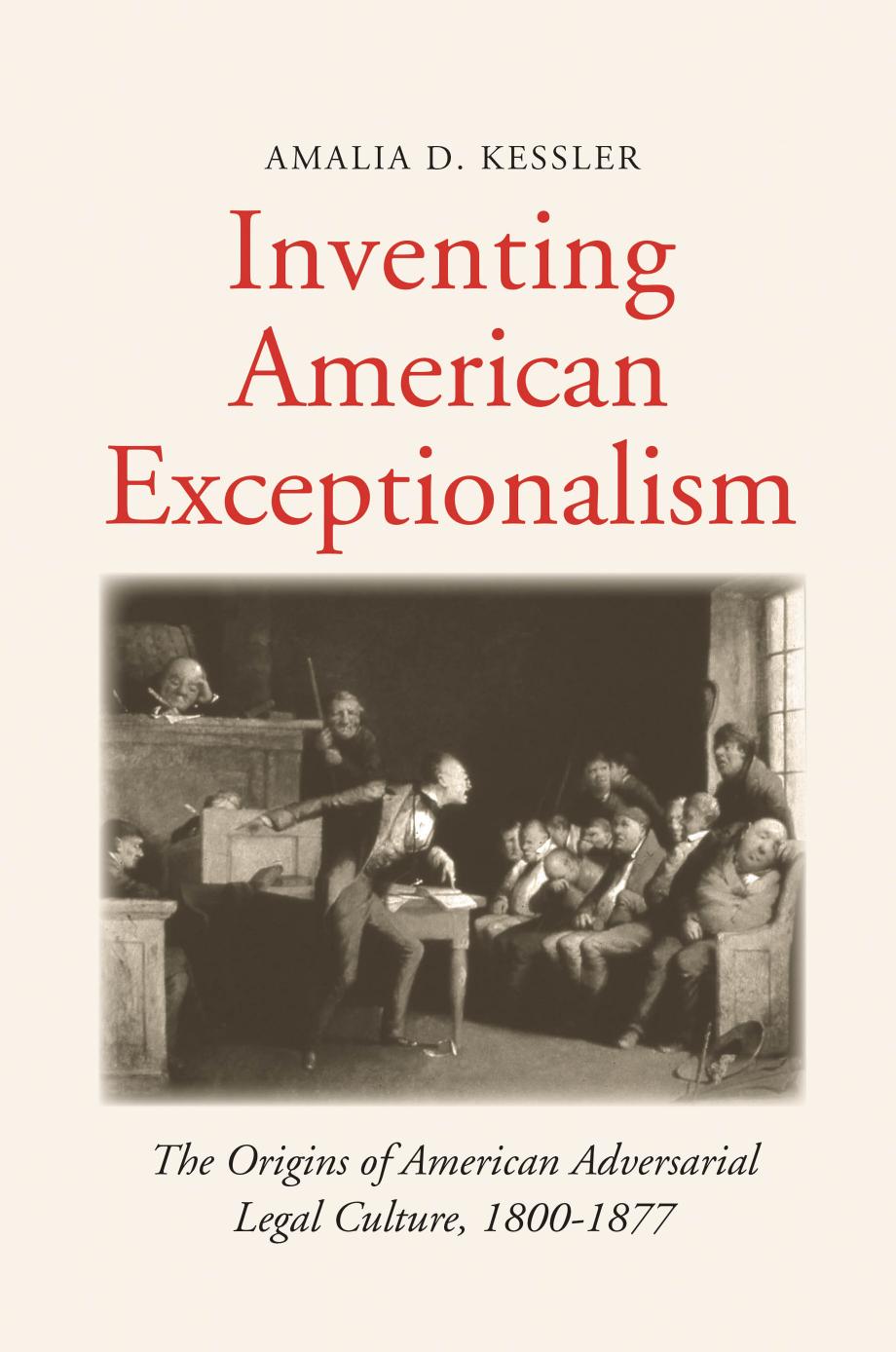Inventing American Exceptionalism: The Origins of American Adversarial Legal Culture, 1800-1877 by Amalia D. Kessler

Author:Amalia D. Kessler [Kessler, Amalia D.]
Language: eng
Format: epub, pdf
ISBN: 9780300198072
Google: b-vUDQAAQBAJ
Amazon: 0300222254
Publisher: Yale University Press
Published: 2017-01-15T00:37:48.029000+00:00
CALIFORNIA
Before turning to mid-nineteenth-century New York, where the debate over conciliation courts and adversarial procedure was most fully developed, it is important to consider another region inherited from the Spanish Empire, where nineteenth-century Americans encountered conciliation courts—namely, California. As part of Mexico and prior to that the Spanish Empire, California inherited a tradition of conciliation proceedings that was more firmly established than that of Florida. But despite this tradition, no legislative effort to preserve such proceedings emerged around the time that California became an American state in 1850—likely because, as described below, the newly established state judiciary quickly ruled that conciliation courts were incompatible with American legal culture. Nonetheless, as a result of the burgeoning literary market for contemporary accounts of California just before and during the Gold Rush—much of it penned by respectable, middle-class easterners—the new state served as an important locus for transmitting knowledge of conciliation courts across the nation. The dominant (and influential) image of such institutions created by this literature was that they were suited only to primitive, deferential peoples lacking the independent spirit necessary for governing themselves through the fixed, predictable rule of law and for engaging in productive market competition.
Because the function of conciliation was long understood to be a core component of the alcalde’s responsibilities, it seems probable that judicial conciliation proceedings were first established in California in 1779, at the time that the region’s Spanish governor created local alcaldes. The alcalde’s role as a conciliating judge was then formalized as a legal requirement in the Cádiz Constitution of 1812. While enforcement of this constitution was in abeyance after the return to absolutist rule in 1814, it came back into force in 1820 during a brief period of Spanish liberalization. Shortly thereafter, when Mexico gained its independence in 1821, the Cádiz Constitution was deemed to be applicable law, until such time as it was superseded.51
The first Mexican constitution, enacted in 1824, continued the tradition of requiring pre-suit conciliation proceedings, but without setting forth any specifics. These were finally established in legislation enacted on March 20 and May 23, 1837. Borrowing many aspects of French law—including the Napoleonic administrative structure of regional prefectures—the March 20 legislation created a new set of officials entitled jueces de paz, or justices of the peace, apparently inspired by the French justices de paix. As directed by this legislation, jueces de paz were henceforth to perform many of the judicial duties (including conciliation) that had been previously entrusted to alcaldes alone. Alcaldes were to exercise their authority primarily in large towns, while jueces de paz were to operate both within smaller rural villages and within particular urban neighborhoods. As for the conciliation procedure that these officers were to follow, this was detailed in the May 23 statute, which adopted in large measure the language of the Cádiz Constitution and its implementing legislation of October 9, 1812. As David Langum demonstrates, these conciliation proceedings proved extremely successful, resolving on the order of 85 percent of the disputes that came before alcaldes and jueces de paz.
Download
Inventing American Exceptionalism: The Origins of American Adversarial Legal Culture, 1800-1877 by Amalia D. Kessler.pdf
This site does not store any files on its server. We only index and link to content provided by other sites. Please contact the content providers to delete copyright contents if any and email us, we'll remove relevant links or contents immediately.
2010-The City & the City by China Miéville(1959)
Anatomy of Injustice by Raymond Bonner(1641)
That Every Man Be Armed by Stephen P. Halbrook(1558)
ADHD on Trial by Michael Gordon(1550)
Injustices by Ian Millhiser(1479)
You Don't Own Me by Orly Lobel(1421)
Tell by Major Margaret Witt(1411)
Course Correction by Ginny Gilder(1387)
Broken Scales by Joel Cohen(1334)
Without Copyrights by Spoo Robert(1329)
A Vast Conspiracy by Jeffrey Toobin(1308)
First by Evan Thomas(1263)
A Religious Orgy in Tennessee by H.L. Mencken(1234)
J by Howard Jacobson(1231)
The Run of His Life: The People v. O. J. Simpson by Jeffrey Toobin(1189)
A Triumph of Genius: Edwin Land, Polaroid, and the Kodak Patent War by Ronald K. Fierstein(1185)
A History Of Thailand by Baker Chris(1162)
John Wayne Gacy by Judge Sam Amirante(1087)
Law 101: Everything You Need to Know About American Law, Fourth Edition by Jay Feinman(1073)
